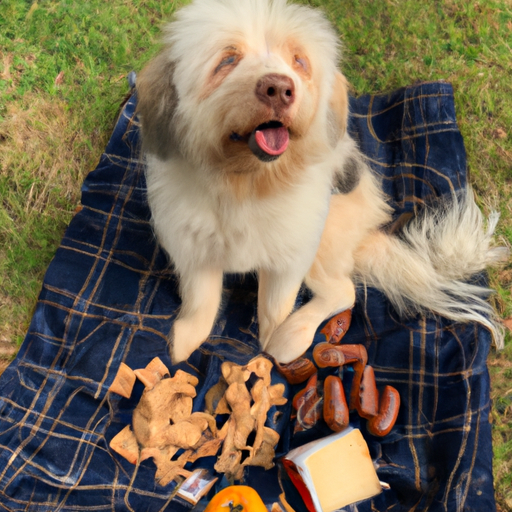As a dog owner, you’ve probably noticed your furry friend eyeing your cheese-laden snack with longing. If you’ve wondered, “what type of cheese can dogs eat?” you’re not alone. It’s a common question, and one that requires a nuanced answer. The short version is that dogs can eat certain types of cheese, as long as it’s in moderation. But let’s dive deeper into the world of dogs and dairy to fully understand the implications.
- Table of Contents
- Cheese: A Brief Overview
- Can Dogs Eat Cheese?
- Which Cheeses Are Safe for Dogs?
- Which Cheeses Are Not Safe for Dogs?
- Tips for Feeding Your Dog Cheese
-
Frequently Asked Questions
-
Key Takeaways
- Some cheeses are safe for dogs to eat, while others are not.
- Always introduce cheese into your dog’s diet slowly and in small amounts.
- Lactose intolerance is common in dogs, so monitor your pet for any adverse reactions when feeding them cheese.
- Consult with your vet before adding cheese or any new food to your dog’s diet.
Cheese: A Brief Overview
Cheese, a product derived from milk, has been a beloved food for centuries. Its popularity is due to its versatility and range of flavors, textures, and types. As a dog owner, you must understand that not all cheeses are created equal, especially when it comes to your pet’s health.
Can Dogs Eat Cheese?
While dogs are primarily carnivores, they can eat a variety of other foods, including some dairy. Cheese can be a great source of protein and calcium for your dog, but it’s essential to remember that cheese is also high in fat and salt. Therefore, cheese should only be given to dogs in small amounts and should not constitute a significant part of their diet.
Interestingly, dogs, like many other mammals, can become lactose intolerant, meaning they have difficulty digesting lactose, the sugar found in milk and dairy products [^1^]. This is why it’s crucial to introduce cheese slowly into your pet’s diet and monitor them for any adverse reactions.
Which Cheeses Are Safe for Dogs?
There are several types of cheese that dogs can safely eat in moderate amounts. These include:
- Cheddar: Cheddar is a hard, mature cheese that’s relatively low in lactose, making it easier for dogs to digest [^2^].
- Mozzarella: Mozzarella is a soft cheese that’s also low in lactose. However, you should opt for low-fat or part-skim mozzarella to limit your dog’s fat intake.
- Cottage Cheese: Cottage cheese is a great option for dogs because it’s high in protein and calcium but low in fat and calories.
Which Cheeses Are Not Safe for Dogs?
Just as some cheeses are safe for dogs to eat, others should be avoided. These include:
- Blue Cheese: Blue cheeses, such as Roquefort and gorgonzola, contain a substance called roquefortine C, which can be toxic to dogs.
- Garlic and Onion Cheese: Any cheeses flavored with garlic or onions are a big no-no for dogs, as these ingredients can be toxic to them.
- Cheeses High in Fat and Salt: Cheeses that are high in fat and salt, such as cream cheese or cheese spread, should be avoided.
Tips for Feeding Your Dog Cheese
Before you start feeding your dog cheese, it’s vital to consider a few things. First, always introduce cheese slowly and in small amounts. Monitor your dog for any signs of lactose intolerance or allergic reactions.
For a more detailed guide on how to safely introduce cheese into your dog’s diet, you can check out this article from OneTopDog.
Secondly, always opt for low-fat, low-salt versions of cheese. This will help limit your dog’s intake of unhealthy fats and sodium.
Finally, it’s always a good idea to consult with your vet before adding cheese or any new food to your dog’s diet. Your vet can provide personalized advice based on your dog’s specific dietary needs and health status.
Frequently Asked Questions
1. Can dogs eat cheese every day?
No, dogs should not eat cheese every day. Cheese is high in fat and salt and should only be given as an occasional treat.
2. Is cheese good for dogs?
Cheese can be a good source of protein and calcium for dogs. However, it’s also high in fat and salt, so it should only be given in moderation.
3. Can puppies eat cheese?
Puppies can eat cheese, but it should be introduced slowly and in small amounts. Always monitor your puppy for any signs of lactose intolerance or allergic reactions.
4. Can cheese help a dog with constipation?
Cheese is not a cure for constipation in dogs. If your dog is constipated, it’s best to consult with your vet for appropriate treatment.
In conclusion, while cheese can be a tasty treat for your dog, it’s important to feed it to them responsibly. Always choose low-fat, low-salt cheeses, introduce them slowly, and monitor your dog for any adverse reactions. For more information on your dog’s nutrition, visit OneTopDog.
[^1^]: Lactose Intolerance in Dogs
[^2^]: Cheese and Dogs: A Guide



